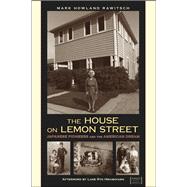
Note: Supplemental materials are not guaranteed with Rental or Used book purchases.
Purchase Benefits
What is included with this book?
| Acknowledgments | p. ix |
| Introduction | p. 1 |
| Here Is Your Chance | p. 7 |
| The Schoolteacher and the SamuraiÆs Daughter | p. 13 |
| Here to Stay | p. 27 |
| In the Shadow of the Mission Inn | p. 41 |
| PilgrimÆs Progress | p. 63 |
| Little Lamb Gone to Jesus | p. 73 |
| The People of California versus Harada | p. 91 |
| World War and a Basket of Apples | p. 107 |
| Face to Face | p. 119 |
| Keep California White | p. 129 |
| The Only Time I See the Sun | p. 147 |
| Farewell to Riverside | p. 165 |
| Leaving Lemon Street Behind | p. 179 |
| Camp | p. 197 |
| Blue Bandanas and an Ironwood Club | p. 209 |
| From Issei to Nisei | p. 227 |
| Questions of Loyalty | p. 243 |
| It's Up to You, Medic | p. 253 |
| Home | p. 267 |
| Epilogue: Sumi's House | p. 281 |
| Afterword | p. 317 |
| Notes | p. 327 |
| Glossary of Japanese Terms | p. 367 |
| Bibliography | p. 371 |
| Index | p. 379 |
| Table of Contents provided by Ingram. All Rights Reserved. |
The New copy of this book will include any supplemental materials advertised. Please check the title of the book to determine if it should include any access cards, study guides, lab manuals, CDs, etc.
The Used, Rental and eBook copies of this book are not guaranteed to include any supplemental materials. Typically, only the book itself is included. This is true even if the title states it includes any access cards, study guides, lab manuals, CDs, etc.